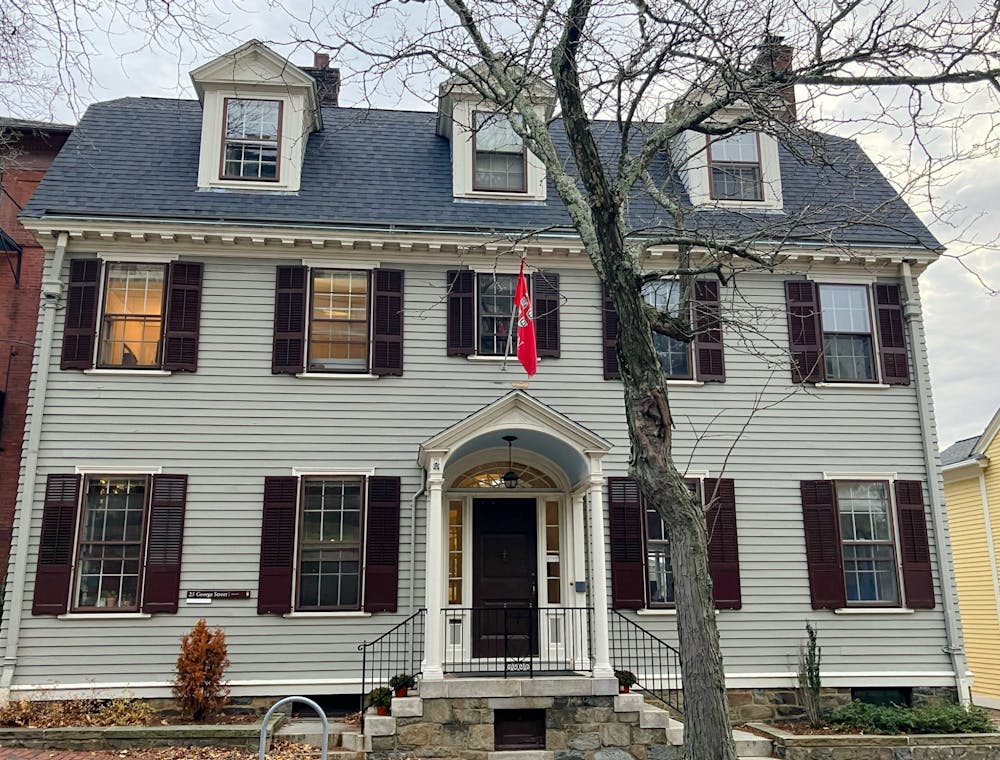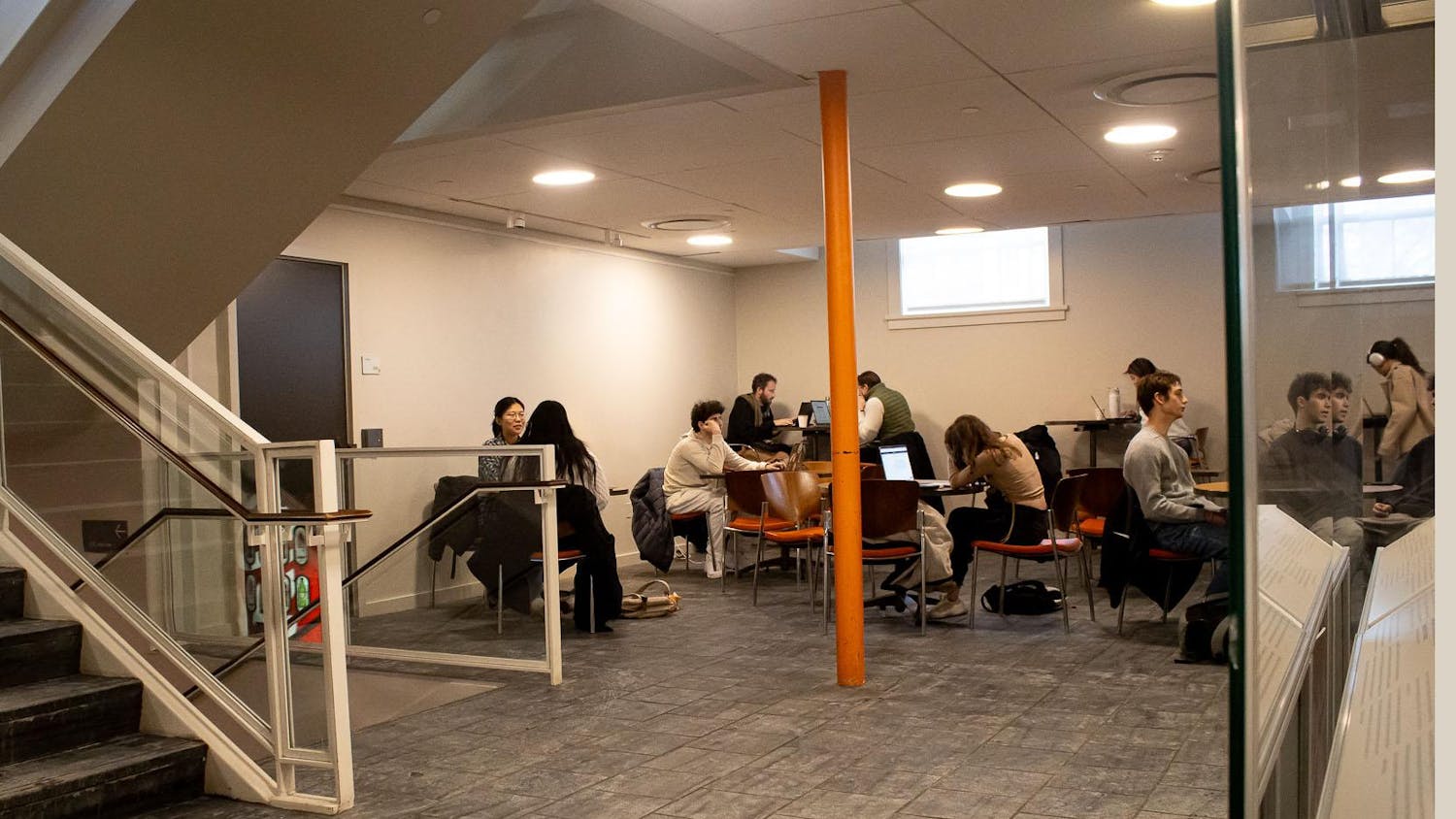The University’s new Center for Philosophy, Politics and Economics, established July 1, has seen “an exciting period of growth” during its first semester, said David Skarbek, the center’s director and associate professor of political science.
The PPE Center’s mission is to “promote research and teaching that engages in scholarship across all fields that intersect through” philosophy, politics and economics, according to the center’s website. The center offers opportunities for “all levels of academic inquiry” including center-affiliated faculty, graduate students, postdoctoral fellows, research workshops and several undergraduate programs.
Since the center’s establishment, “we've had some excellent programming,” Skarbek said. “We've had economists and philosophers here and conversation coming both from Brown and universities across the country.”
Faculty members voted in favor of establishing the center at the May 2022 faculty meeting following months of pushback from students and faculty, who raised concerns regarding the potential influence of science-denying donors in the center’s creation, The Herald previously reported. Such concerns arose because the center was intended to absorb the Political Theory Project, a University research program previously partially funded by the Koch Foundation, funded by billionaire and conservative political mega-donor Charles Koch.
An interdisciplinary, cross-generational approach to academia
Skarbek said that one way the PPE Center encourages interdisciplinary collaboration across academic levels is through its Philosophy, Politics and Economics Society, a biweekly reading group hosted by the center that facilitates discussions between students and faculty “through a variety of different analytical lenses.”
“Collaborations between different generations of scholars and across different disciplinary boundaries is important because the world is faced with a lot of pressing social problems right now,” Skarbek said.
The PPE Center has hosted several events this semester, including a lecture with Chris Blattman, professor of global conflict studies at the University of Chicago, and Jessie Trudeau, a PPE postdoctoral fellow, about conflict in Latin America.
Trudeau is one of many participants in the center’s Postdoctoral Fellowship Program, which selects “top talent across the disciplines to be in residence at Brown for two years” to participate in the center’s research activities, according to the center’s website. In their time at Brown, the fellows pursue research, publish work, participate in PPE events and help create new courses.
“Brown has a lot of people that I wanted to meet and interact with and has an intellectual experience that is so different,” Trudeau said.
“Hearing from people with different backgrounds and expertise and then getting their feedback on my own work has been really useful,” she added.
The new PPE center has also absorbed some of the PTP’s “most interesting programs,” such as the postdoctoral programs, the Agora Lecture, the Odyssey Lecture and the Janus Forum Lecture Serie, Sharbek said.
Students Against Koch Influence weighs in
Some of the PPE’s former critics have since been involved in the center’s creation and programming, according to Ethan Drake ’24, a member of Students Against Koch Influence.
The organization that was formed in reaction to the then-proposed PPE Center. The group expressed concern over the PTP and its development into the PPE when the plans for the center were introduced, The Herald previously reported. The group specifically objected to the PTP and the center’s previous associations with donations from Koch, who has also supported climate change denial.
In SAKI’s most-recent Instagram post from May 2022, the group announced it would “work with faculty to write the PPE Center’s mission statement, ensuring it is distinct from other, Koch-backed PPE Centers.”
“We worked with (Provost Richard Locke P’18) to do that, but I'm not entirely sure how much of our input actually ended up playing a role in the (final) mission statement,” Drake said. He added that he has not yet seen the University address its policy on denying donors who “actively engage or knowingly engage with science disinformation.”
“We thought there was going to be more work from the administration toward denying these donors,” he said. “But there haven't been any commitments.”
Locke wrote in an email to The Herald that SAKI’s input did in fact help shape the mission statement of the new center, though “this is completely separate from the gift acceptance policy and process being developed by the University, (which) should come out soon,” he said.
Sponsoring new projects, events
Drake said he has attended a few PPE events this semester and is excited by PPE Center’s new programming. He is currently working with the PPE Center to organize the Baldwin and Glaude Reading Group, which will center discussions on topics such as race and democracy.
“After all that work that we did last spring … against the money that the (PTP) has been taking for almost two decades … it is cool that we can be an active part in shaping how that money is spent,” Drake said.
This reading group will be hosted by the recently launched Democracy Project, “a research and programming wing” of the new center, according to Melvin Rogers, associate director of the PPE Center and associate professor of political science. Rogers serves as a director of the Democracy Project, along with Juliet Hooker, professor of political science, and Bonnie Honig, professor of modern culture and media and political science.
The Democracy Project aims to “promote and study the norms, values and institutional structures of democratic societies,” Rogers wrote in an email to The Herald.
“The Democracy Project is just getting going, but it aims to be a focal point on campus that pushes us all to reflect on what are democracy's necessary conditions,” Honig wrote in an email to The Herald.
Honig added that the Democracy Project has sponsored two programs so far: “Our Country”, a play co-sponsored by the Brown Arts Institute, which is set to open in New York City in January 2023; and a conversation about “Happening,” the film adaptation of the book by Nobel Prize Winner Annie Ernaux.
Rogers wrote that he believes the PPE Center and the Democracy Project are opportunities for the University to consider its civic footprint.
“It's a very exciting time to be a part of” the PPE Center, Skarbek said. “And to be part of building something at Brown that we think is going to be a permanent and very positive influence on the campus for years to come.”
Correction: A previous version of this story's photo caption stated that the Political Theory Project was still active and partially funded by the Koch Foundation. The Herald regrets this error.





